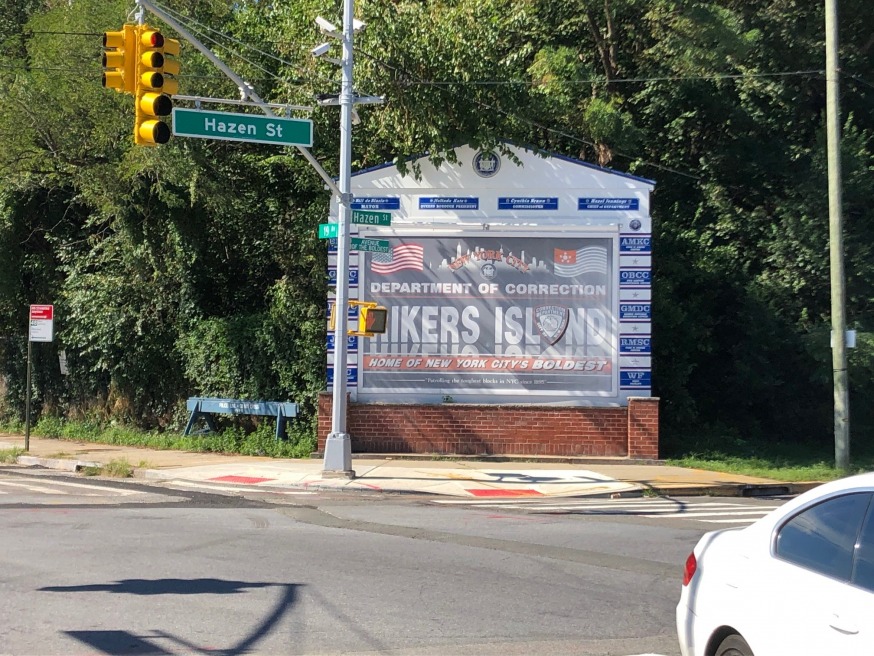
Rikers Island sign (Photo: QueensPost)
Oct. 13, 2021 By Allie Griffin
More than 200 women and trans individuals incarcerated at Rikers Island will be moved to state-run jails starting next week, Mayor Bill de Blasio and Gov. Kathy Hochul announced Wednesday.
About 230 individuals will be moved to two facilities in Westchester both to protect them and help alleviate ongoing issues at the Rikers Island jail facility.
“I am especially heartened that the State is able to assist some of the most vulnerable populations on Rikers,” Hochul said in a statement Wednesday. “And today, I am proud to announce the State’s agreement with the City to temporarily move the majority of these populations off Rikers and into safer State facilities, and I thank the City for its partnership on this important step.”
The incarcerated will be transferred in groups of 10 to 20 at a time, twice per week beginning the week of Oct. 18. They will be placed at either the Bedford Hills Correctional Facility or the Taconic Correctional Facility.
“These actions will further help ease staffing concerns, capacity constraints, and improve safety for several hundred detainees until such time that the City can identify and implement a permanent solution that will bring justice to the situation at Rikers,” Hochul said.
The women and trans individuals will undergo various assessments — including medical, mental, academic, vocational and substance use assessments — upon arrival at their new facilities. They will then be assigned to programs or work assignments based on their needs.
De Blasio thanked Hochul for the state’s assistance.
“New York City is committed to forging a fairer, more humane justice system,” he said in a statement. “I’m proud to work with Governor Hochul on this initiative, which will provide important relief for the situation on Rikers.”
The NY Department of Corrections will provide daily transportation from New York City to the Westchester facilities for the inmates’ visitors — with one pick-up/drop-off location per borough. There will be pick-ups twice a day at each location beginning Oct. 22.
The 230 transfers, however, are only temporary. Hochul, therefore, has tasked the NYY DOC to advise the city on possible long-term solutions.
The transfers follow numerous reports of inhumane conditions on Rikers Island and nearly a dozen deaths at the detention center this year.
To lessen the number of inmates incarcerated at Rikers Island, Hochul recently signed the Less is More Act — which aims to prevent detentions for minor or technical violations — into law. To date, 239 individuals have been released from Rikers as a result of the law.
The city plans to close down Rikers by 2027 and replace it with four jails, one in each borough except Staten Island. The Queens jail is slated to be constructed in Kew Gardens nearby Queens Borough Hall and Queens Criminal Court.
One Comment

All it takes is one recent visit from AOC at Rikers and change occurs for the better. She is so feared by the establishment and racists.